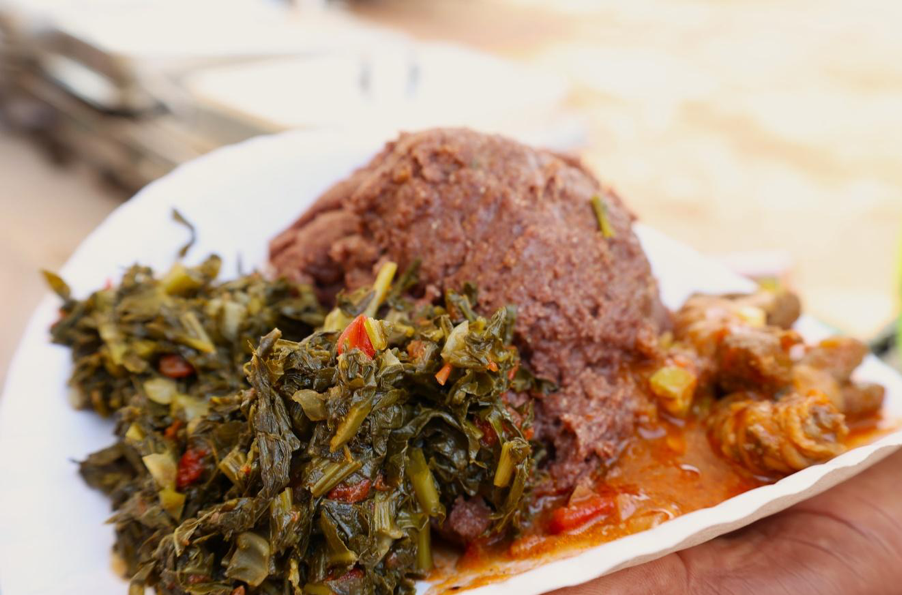
Brian Chitate, (33), is a smallholder farmer from Bindura South in Ward 14. He works with PELUM Zimbabwe member, Farmers Association of Community self-Help Investment Groups (FACHIG) Trust. Brian joined FACHIG in 2024, after realising the organisation’s work in promoting sustainable farming and food systems.
Brian says before he started working with FACHIG, he started to question his dietary choices which involved the consumption of fast and junk foods with little to no real nutritional value. He says his turning point came in 2024 when he started working with FACHIG Trust where he got knowledge on traditional foods.
I started working with FACHIG Trust in 2024 after realising the benefits of their initiatives in promoting sustainable food systems through traditional indigenous and highly nutritious foods as compared to the junk foods I used to consume. Traditional foods are rich in nutrients and they adapt to our local climate. Our indigenous food is naturally packed with vitamins and minerals. And because of this it helps in preventing malnutrition in my family and provides a balanced diet,” he says.
Brian also recognises the role of traditional foods in building and strengthening community resilience.
“Traditional foods enhance community resilience by providing localised and diverse dietary options that can withstand economic shocks. When we rely on local and traditional crops, we are less vulnerable to global market fluctuations. This diversity ensures that even in tough times, families can still access nutritious food,” says Brian.
As a farmer, Brian has pivoted entrepreneurial endeavours on his newfound knowledge on traditional foods. He says selling traditional foods has given him a way of life and is helping in sustaining local economies.
“Traditional foods can boost local economies by creating demand for locally grown produce. When farmers sell indigenous crops at local markets, they keep the money within our community. This supports local farmers and helps to create jobs. Promoting traditional foods can also attract tourists interested in cultural culinary cuisine, which can further benefit our economy.” he says.
Ndakaitei Chigonye Makuvara (52), a smallholder farmer from Jeri Village in Bikita District, shares how traditional foods saved her life when she was attacked by a strong illness.
“When I was 32, I suffered a stroke on my left side. The doctors encouraged me to eat traditional meals rich in nutrients. Since then, I have made it a point to only eat traditional foods like sorghum and finger millet,” Ndakaitei explains.
Mufaro Mupetesi, (27) Programmes Officer for FACHIG Trust says his organisation has been teaching farmers and local communities on the importance of traditional foods and grains, particularly highlighting the health and economic benefits associated with these.
“The benefits of traditional grains such as sorghum, millet and pearl millet is that they provide superior nutritional benefits compared to other cereals like maize and wheat. At the same time, when we choose to eat locally grown produce, we support our farmers and sustain our local economies, which builds and strengthens our communities’ resilience,” he says.







